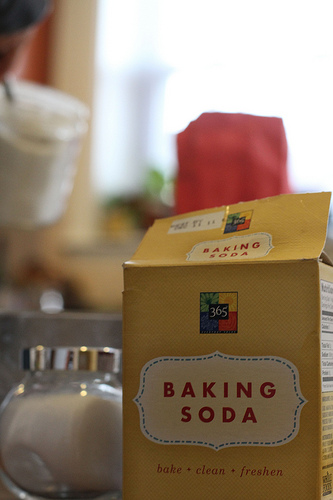Odor-friendly products that leave you, and the planet, smelling great
 If there’s one thing most of us don’t want to compromise on, it is making sure that we don’t smell! People will go a long way to improve their personal, as well as the global, environment – but no-one wants to be the one that the elevator empties for. Body odor isn’t natural, or organic – it’s just rude. So no wonder most of us have happily gone along with the compelling story that the toiletries industry has told us – and that our shelves are groaning with their deodorants, antiperspirants, colognes and perfumes.
If there’s one thing most of us don’t want to compromise on, it is making sure that we don’t smell! People will go a long way to improve their personal, as well as the global, environment – but no-one wants to be the one that the elevator empties for. Body odor isn’t natural, or organic – it’s just rude. So no wonder most of us have happily gone along with the compelling story that the toiletries industry has told us – and that our shelves are groaning with their deodorants, antiperspirants, colognes and perfumes.
But there is another side to the odor-neutralizing industry, which in fact leaves something of a bad odor itself. There are serious concerns related to personal health, and the wider environmental impact, of these products. These have many people thinking about what the alternatives are. So should you jump over the divide into the alternative toiletries world – and if you do, will you still come up smelling of roses?
If you’re ready to contemplate the ditching of modern antiperspirants and deodorants, how can you be sure to keep your scent on the pleasant side? There is certainly a burgeoning market in ‘natural’ deodorants these days. But can these be entirely trusted – many of the ingredients listed are identical to those found in conventional deodorants.
A big problem here seems to be a lack of a proper accreditation scheme – one that can distinguish between those products that claim to be naturally based, and those that use traditional industrial compounds. The Food and Drug Agency has backed away from getting involved to police these products, so where does that leave those seeking alternatives?
Well, one way to avoid getting caught out is to go with simplicity. The ingredients that allow conventional deodorants to do their job so well are aluminum and zinc salts. And, somewhat surprisingly, there are natural aluminum salts, such as Ammonium Alum, which can cut it equally as effectively with your body odor. But because the aluminum in these salts is bonded in larger molecules, issues to do with aluminum absorption through the skin are minimized – and so are health risks.
There are a number of natural deodorants on the market that are based around using only these salts – with no superfluous and cosmetic ingredients that may be of concern. So replacing your deodorant chemical-cocktail with these simple products can go a long way towards the goal of de-toxifying your life.
But if you really want to get a firm handle on your own body odor management, without relying on the cosmetic industry, you could get adventurous – and make your own. This needn’t be as daunting as it sounds. The base ingredients are surprisingly simple, and the scope for experimentation can make it tremendous fun. And best of all, you are in charge of what goes into your deodorant. So if you want it all-natural, that is exactly what you will get.
The base ingredient for many home-made deodorants is something to be found in most homes and kitchens- bicarbonate of soda. It turns out that this simple, naturally-derived powder has great properties for absorbing odors. Rather than struggling to suppress your sweating (which seems a slightly odd thing to want to do, when you think about it) your skin is allowed to perspire as normal. But to get the bicarb in place, it needs to be bound up in a gel of some sort. So home-made recipes usually include equal measures of shea butter and cocoa butter, to arrive at a nice creme consistency.
This is also where the fun starts- with you new base creme, you can start being inventive. You can add your favorite essential oils, such as jasmine or lavender, or even ylang ylang and orange. You could also throw in vitamin complexes, such as vitamin E- believed to helps to keep the skin healthy – and you’ve got a perfect blend.
Rather wonderfully, doing it yourself also avoids problems of toxifying your body, or the wider environment. It also means less packaging, requires little or no energy to make, and it doesn’t come from petroleum-based products. With an environmental checklist like that, it really won’t be just you that will be smelling sweet from your efforts.
This article is a guest post from Edward, a blogger who writes about freeware reviews at www.bestfreeonline.net
Image credit: ![]() Some rights reserved by [F]oxymoron
Some rights reserved by [F]oxymoron
Now I can start odor-friendly products this new year. Thanks for the tips. It’s really important to also think about the environment whenever we use products.